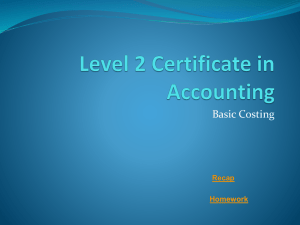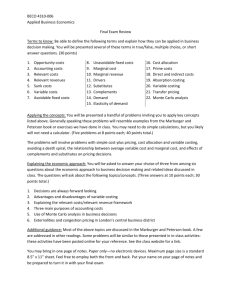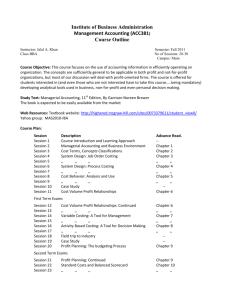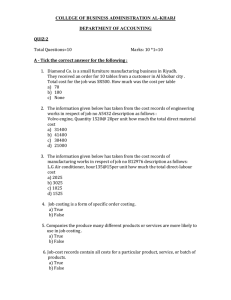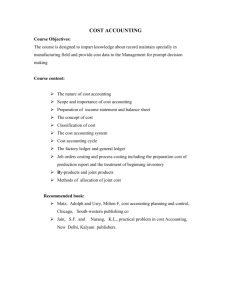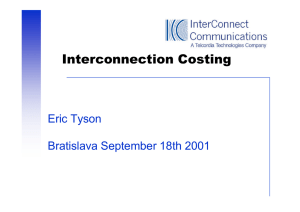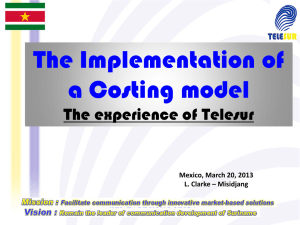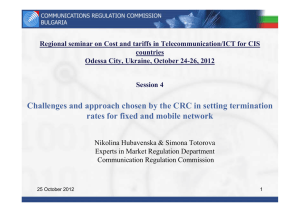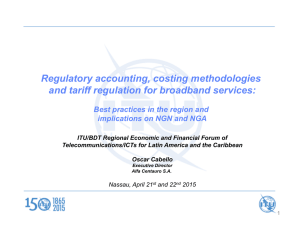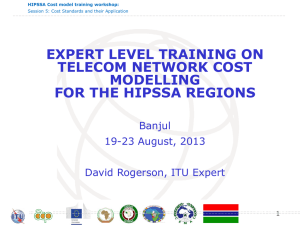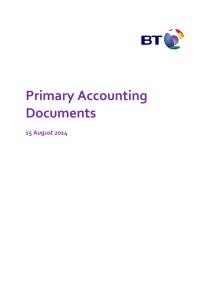Available Costing Concepts and Their Data Demands Werner Neu by
advertisement
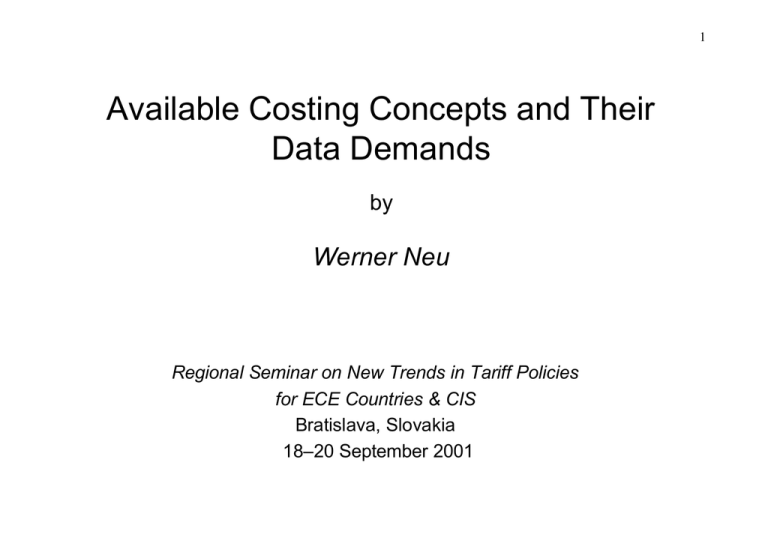
1 Available Costing Concepts and Their Data Demands by Werner Neu Regional Seminar on New Trends in Tariff Policies for ECE Countries & CIS Bratislava, Slovakia 18–20 September 2001 2 Contents • • • • • • • General definition of cost Fully distributed cost Long run incremental cost Activity based costing Short run incremental cost Other cost concepts Regulatory requirements of approaches to costing • Summary 3 General definition of cost • Cost is the current valuation of scarce resources used up in an efficient way for a particular purpose, usually the production of a good or service • Note emphasis on: - scarce resources current valuation used up in an efficient way for a particular purpose 4 Fully distributed cost • Start with this concept because it has been so important in the past • Features: • Uses a backward-looking perspective Little consideration given to efficiency All of common cost distributed Data requirements: - Low: Uses data from firm’s cost accounting records • Concept not consistent with definition above => therefore on its way out 5 Long run incremental cost (LRIC) • Recognized as the relevant concept for a competitive environment by most regulators and observers • Features: - Uses a forward-looking perspective No cost not pertaining to service being looked at included Only cost due to efficient operation recognized Can be implemented through analytical cost models For pricing purposes, common cost to be added as an extra margin, to be dependent on market conditions • Data requirements: - High: Requires detailed knowledge of production process, current prices of resources used up Can nevertheless be fulfilled by external analysts (as for example for analytical cost models) 6 Activity based costing (ABC) • Associated with the concept of LRIC • Features: - Focus on cost of activities (in contrast to cost of infrastructure) Identification of cost drivers for each relevant activity Identification of linkages between activities and services Data requirements: - High: Explicit studies needed to identify relevant activities, cost drivers and linkages to services Due to cost of such studies, there is a limit to which ABC should be carried 7 Short run incremental cost • Relevant in the short run, mostly in cases where available capacity is not fully used • Features: - - There are fixed cost that do not vary with short run variation in output Costs that do vary are less than in case of LRIC => supply of service at lower price may be profitable • Relevance: - For a regulated dominant operator, often not verifiable whether pricing with reference to lower short run cost not really motivated by operator’s anticompetitive intentions However, for emerging and transition economies, pricing based on short run cost relevant where demand is too weak for existing segments of the network 8 Other relevant cost concepts • • • • • • Marginal cost Opportunity cost Fixed cost Shared cost Indirect vs. common cost Sunk cost 9 Regulatory requirements to be met by costing procedures • Non-discrimination - From it follows requirement of efficiency • Transparency - Needed to evaluate fulfillment of other requirements • Objectivity - Essentially a requirement of high professional standard in carrying out costing exercises • Practicability - No overkill; need to observe resource constraint also affecting cost accounting 10 Summary • One should be aware of proper definition of cost • FDC’s backward orientation and lack of efficiency awareness makes it a standard of the past • LRIC the relevant standard for a competitive environment • ABC should be judiciously used to make LRIC a complete standard • Short run cost relevant for situations with existing network segments for which demand is weak • Importance of procedural requirements of non-discrimination, transparency, objectivity and practicability
